Sandra tells her story of being offended by someone’s comment at a dinner party about it being inappropriate to type children and her subsequent research into the validity of this criticism against using personality type with kids.
Em & Sandra give a quick update on what’s new in their lives and then they dig into the topic of the day.
Is typing our children harmful? Using personality type appropriately with kids.
- Common criticisms of personality type and specifically using it with kids
- Address the concerns about typing kids and also talk about how to appropriately use type with children (and adults too because it applies to both)
Common Criticisms:
- “Personality type isn’t actually a thing and it isn’t scientific”
- It is a thing – just perhaps not how they’re defining it. They seem to define it as as set pattern of actions or behaviors – remember MBTI only looks at your preferences for certain things – it is not saying you only act a certain way. And Enneagram looks at your motivation behind why you do the things you do – it doesn’t predict what you will actually do. So yes your personality type- your actions your behavior- those are within your control and no personality type structure can predict those. BUT you do have certain preferences, certain motivations – and identifying those can be really helpful so that you can determine if you should follow your most comfortable way of how to act and when not to.
- It is scientific – it’s just an emerging science. There are people studying patterns of personality type and finding data that supports the Myers-Briggs model. One great example is Dr. Dario Nardi who is a Neuroscientist at UCLA. He has done studies using EEGs to measure brain activity and compare it between MBTI types and finding clear patterns. His book is called The Neuroscience of Personality.
- “You results on personality type assessments change over time or based on your mood when you take them so therefore it’s BS”
- 100% true and totally agree. This does not undermine the models however, only the assessments. You need to understand the complexities of the model and of the person to really accurately come to a conclusion as to someone’s type. A forced choice online assessment simply cannot get at the complexities and the gray areas.
- In my own work with clients – assessments just over 50% accurate in my experience (80-something% per preference pair according to MBTI which equals to about 40-something% overall)
- Used as a tool – just one piece of information
- “Personality typing encourages a fixed mindset. It makes you create an identity for yourself that you see as unchangeable. Similar to “I’m bad at math” causes you to feel that that is an unchangeable skill, so you never work at it and it becomes a self-fulfilling prophecy”
- I think this is a legitimate risk that can come with personality typing. And could be especially harmful with kids if true
- It’s not something I thought about previously because to me SELF GROWTH and personality typing go hand in hand. To me it’s “here’s how you can grow as a person now that you understand yourself, your preferences and your motivations more clearly.” But I think it would be irresponsible not to acknowledge the real danger in it doing the opposite of that.
- But to only focus on the risk of causing a fixed mindset rather than a growth mindset completely ignores the benefits of understanding your kids type which to me is mostly:
- Empathy, compassion and a deeper understanding for what it’s like to be them
- More of what they need to function happily and healthily
- Places where they can grow and how to help them grow in those ways
So let’s talk about how to use personality type appropriately with children so we can get the benefits without the risks. How do we use personality type in such a way that it doesn’t create a fixed mindset??
Using personality type appropriately with kids: (and by the way, this applies to adults too)
Stay away from limiting words
Like “you always” or “you only” –
Instead: “you have a preference for xxx”, “your natural instinct is to do it this way” “your most comfortable way of being is xxx”
Regularly remind them that they are capable of using their opposite preference, just as capable as anyone else in fact
It just takes more energy, more focus, more work and they may need more rest afterward
Check your own limiting beliefs about your child
E.g. do you think your shy sensitive little introvert could never join the debate team and kill the opposition? Check that. Your limiting beliefs about them will become theirs.
Give them tools to work on those opposite preferences and plenty of breaks to operate in their more comfortable way of being so that they have the energy to flex when they need to
Leave a comment or send an E-mail: Do you have limiting beliefs about yourself or your kids? Do you think personality type should be used with children?
What’s upcoming:
Leslie & Laura from the Heartswitch podcast are back to talk about what it’s like being in an INFP/INFJ relationship.
Rate, Review, Subscribe, Share
Email: familypersonalitiespod@gmail.com
Instagram: FamilyPersonalities
Facebook: FamilyPersonalities
Website: www.familypersonalities.com
